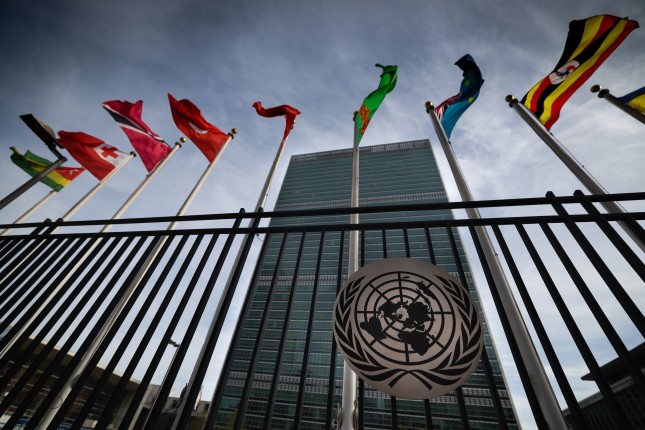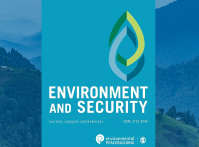-
The UN Security Council Debates its Role in Tackling Climate Security
July 6, 2023 By Angus Soderberg
Climate change is a security concern due to its role as a risk multiplier, aggravating political, social, and economic vulnerabilities, straining resources, and undermining institutions. And as climate change intensifies, its impact on military operations around the world, including UN peacebuilding efforts, will grow in tandem.
At a recent UN Security Council ministerial meeting members stressed the need for multilateral action on climate security and debated the impact of a changing climate on instability, security, and broader efforts to secure peace. Closing in the spirit of unity, Under-Secretary-General for Peace Operations, Jean-Pierre Lacroix, stated that “together we can build a future where our efforts in conflict prevention, peacemaking, peacebuilding, and peacekeeping reinforce and are complemented by our commitment to addressing the climate crisis.”
Representatives offered policy solutions ranging from deploying climate, peace, and security advisors in field operations to incorporating conflict prevention and peacebuilding measures into climate-related early warning systems. Efforts to broaden the Security Council’s mandate to include climate change and broader threats to peace and security continue to fail, however, largely due to protests from Russia and China. This tension reflects a larger debate about whether security risk assessments should incorporate non-traditional threats such as climate change.
Expert Analysis of the Meeting
Beyond the UN Security Council: Can the UN General Assembly tackle the climate–security challenge?
In a Stockholm International Peace Research Institute (SIPRI) Commentary, Adam Day and Florian Krampe provide a critique of the UN Security Council’s ability to meet the demands of the climate security challenge. China and Russia lead the effort to keep the Security Council’s current position on climate security limited, instead focusing on permitting the use of military force and deploying peace operations. While this means that the Security Council will likely adopt an incremental approach, “greater activity within the General Assembly could have a ripple effect across the system, potentially driving action on other fronts, and even pressuring the Security Council to take up the issue more directly.”
The Geopolitics of Climate Change: China and the United States at the UN Security Council
Writing for the Center for Climate and Security, Erin Sikorsky situates the meeting in the context of U.S.-China relations. China’s framing of climate security risks as a result of the lack of effective climate action from the Global North and meager provision of assistance to the Global South for adaptation provides “an opportunity for the United States to call China’s bluff as Beijing calls for more climate finance but does not actually provide significant funds,” writes Sikorsky. “Stepping up U.S. leadership on climate finance and adaptation will pay dividends not only in addressing climate security risks but also strengthening the U.S. hand in its competition with China, demonstrating Washington’s commitment as the partner of choice for the Global South.”
Continue reading on the Center for Climate and Security.
Author: Angus Soderberg is a Staff Intern with the Environmental Change and Security Program at the Wilson Center.
Sources: United Nations, SIPRI, The Center for Climate and Security
Photo credit: Flags at the UN Secretariat building in New York, courtesy of Viktor_IS/Shutterstock.com.
 A Publication of the Stimson Center.
A Publication of the Stimson Center.






